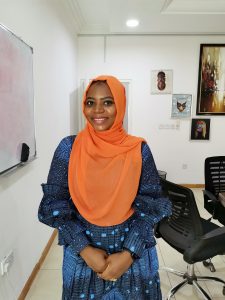One of the many Social Contract theories employed to explain the concept of the civil society imbued with laws and acceptable behavioral codes is the ‘State of Nature’ which denotes the hypothetical existence of mankind before the invention of societies as we know it today. In this state of nature, everyone was free to do what they liked without consequences – everyone was equal and this meant no one had any superior powers to enforce law and order.
As expected, this uncontrolled system was bound to breed chaos and anarchy. It was survival of the fittest in its rawest form and the weak lived in a state of constant fear with no protective mechanism. Life according to Thomas Hobbes was “solitary, poor, nasty, brutish, and short”. This scenario led to the emergence of the Leviathan- a petrifying creature to whom all citizens surrendered their rights in return for protection and safety from the chaotic State of Nature. Our Leviathan today is the Government.
Now, since the citizens have forgone some of their rights and undertaken responsibilities to allow for a functional civil society, it is only expected that the Leviathan holds up its own end of the bargain. Inversely, in cases where the state fails to deliver its responsibilities, it is expected that the citizens gradually commence reversal to certain semblances of the State of Nature. This perhaps is the representation of Nigerian state as it is today.
With an estimated population of over 200.96 million, Nigeria today is saddled with a myriad of multidimensional crises. From the Boko Haram insurgency, to the herdsmen/farmer crises, the looming banditry and kidnapping industry, the yahoo-yahoo departments, the inter-religious/ethnic bigotry and many many more others. All of these realities point to one obvious truth- the citizens are back to assuming control, albeit a destructive kind. Why? Because the Leviathan is failing.
Contracts only make sense when all parties uphold its sanctions. The Nigerian state is gradually losing its grip on the state of affairs and with a persistently growing population and scarcity of resources, these issues are bound to occur. However, our case is still different.
While other countries who share similar challenges have confronted it with good and apt governance, justice and fairness, our system is still one that favors a few to the detriment of many. The resources of the many continue to be diverted by the few. Admissions to schools are still manipulated to favor the few, available jobs are handed over to the few and the many (who continue to grow in number by the way) are no longer chanting “Haka Allah ya so” (it is the will of God). Now, #theytoo are taking up arms and challenging the system.
The average Nigerian kidnapper, bandit or Boko Haram terrorist (since a good number of foreigners also support these industries) have never felt the impact of Government. They farm their food, source their own drinking water, treat their diseases and bury their dead- all alone. They have not seen tarred roads in their remote villages, or functional schools where civil values and life skills are taught – they are self-taught, largely by hardships. These brand of citizens are not even aware that they should owe the government any allegiance. They merely survive in a difficult world and expectedly will do anything to survive. After all, only the fittest survive.
The implication of these chain of realities as stated earlier is the not-so gradual reversal of any civil society to the chaotic State of Nature. The Nigerian government cannot continue to be docile. It is no longer enough to stabilize the economy when resource sharing is not equitable. The entire system of governance that accepts mediocrity and allows a repeat of the same failing techniques and incompetent people must be turned inside out and replaced with better mechanisms and capable people. Then, only then can we avert the rapid sprint towards a state of life that is “solitary, poor, nasty, brutish, and short”.
By Habiba Sani Suleiman, Abuja – Nigeria
Habiba is passionate about politics, sustainable development and gender mainstreaming across African societies. She holds a bachelor’s in International Studies, a masters in Conflict Peace & Strategic Studies and and MSc in Policy and Development Studies.



